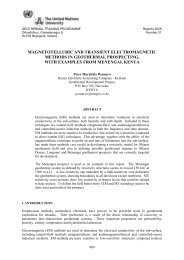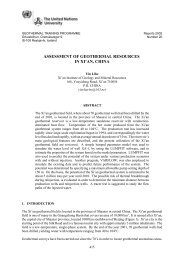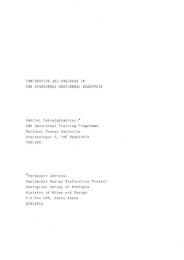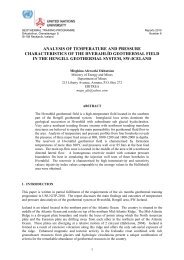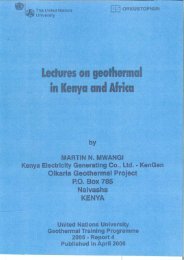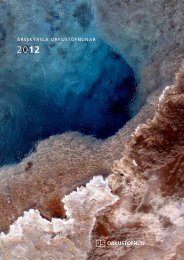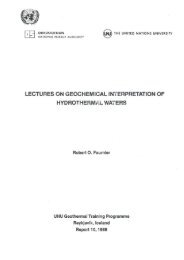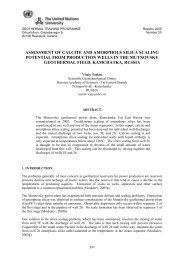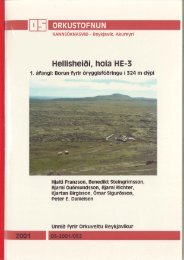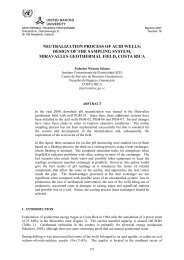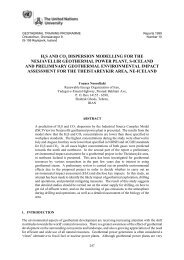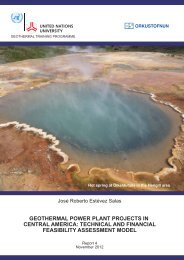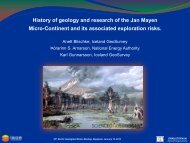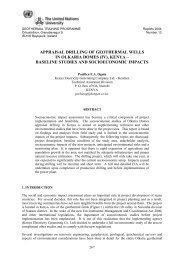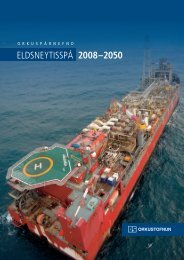ENERGY IN ICELAND - Orkustofnun
ENERGY IN ICELAND - Orkustofnun
ENERGY IN ICELAND - Orkustofnun
You also want an ePaper? Increase the reach of your titles
YUMPU automatically turns print PDFs into web optimized ePapers that Google loves.
Oddur SigurðssonHeated parking space at Perlan, Reykjavik.ings; in 2005 it accounted for 89%.The remainder of the buildings isheated by electricity, 10%, and oil,1%. The evolution of the space heatingmarket is shown in Figure 1.In recent years, the increased utilizationof geothermal energy for spaceheating is a result of the populationincrease in the capital area. Existingheating utilities have been expandingand taking over small utilities. Inaddition, a number of small heatingutilities have been established in ruralareas. A major heating utility locatedin Eskifjordur, East Iceland, willbe completed in 2006.There are some 200 small, rural utilitiesin Iceland. As a result of changing settlement patterns, and the continuing searchfor geothermal sources in the so-called cold areas of Iceland, the share of geothermalenergy in space heating can be expected to exceed 90% in the near future.Snow meltingDuring the past two decades, geothermal energy has been increasingly used to meltsnow from streets and pavements in the urban areas. In 2005, the total area of snowmelting systems installed in Iceland is estimated to be around 835,000 m 2 , and thesystems’ annual energy consumption is approximately 360 GWh. Over half of thisenergy is retour water from space heating systems.During the winter months in Iceland, it is not uncommon to see pavement and walkwaysoutside public or private buildings clear of snow. This is due to the snow meltingsystems installed underneath the sidewalks.UNU GeothermalTraining ProgrammeIn 1978, the United Nations University GeothermalTraining Programme was established with Iceland’sNational Energy Authority as the host institution.The purpose of the programme is to help developing countries with considerable geothermalpotential to build groups of specialists on geothermal exploration and sustainabledevelopment. The programme annually offers specialized training in various fieldsof geothermal studies. In 2005, 338 scientists and engineers from 39 countries had completedtraining in the six month specialized courses that are offered. UNU-GTP graduatesare, in many countries, among the leading specialists in geothermal research anddevelopment.20



